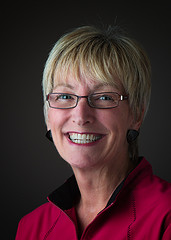October is National Celiac Disease Awareness Month, and as much as I would prefer to focus on the positive, it probably is good to explore why so many people have difficulty related to wheat even though our ancestors did not.
It is estimated that about 1 in every 125 people have gluten intolerance, yet Celiac Disease (an illness that damages the lining of the small intestine) is largely undiagnosed. The damage to the stomach lining inhibits the body’s ability to absorb nutrients from the food it eats.
Much of the research seems to indicate the issue with gluten intolerance is the result of wheat having been engineered to increase crop yields. This engineering reportedly has caused significant change in gliadin, a glycoprotein. Gliadins and glutens are what make bread rise during baking. Gliadins and glutenin participate in the formation of gluten.
According to William Davis, M.D., author of Wheat Belly, which is on Amazon’s bestseller list, gluten problems arise because of gliadin sensitivity.
When we eat wheat, the gliadin gets broken down into polypeptides, which are small enough to cross the blood-brain barrier and bind with certain opiate receptors. Because of the nature of these opiate receptors, gliadin doesn’t cause pain relief or euphoria, it causes addiction and appetite stimulation. (Grain of Truth: Stay healthy and trim, the wheat-free way, Better Nutrition, October 2012)
Since grains are an essential part of a healthy diet, you can avoid wheat and include grains that are better for you. Consider substituting brown or wild rice, quinoa. Explore using pure buckwheat, flax, or whole corn. Millet, gluten-free oats, and sorghum might also be good choices. You might also discover little-known grains that have been around a long, long time. Amaranth was used in Aztec religious ceremonies until it was banned by the Spanish conquistadores. Fortunately, some grew wild, and a small amount is now being grown and sold (check your health food store or co-op) here in the U.S. This is what the crop looks like:  This week, focus on the many options that are available. The internet is a wonderful source of information, so when you would have seen a limitation, look to see what good stuff you may have previously been missing.
This week, focus on the many options that are available. The internet is a wonderful source of information, so when you would have seen a limitation, look to see what good stuff you may have previously been missing.
 |
Rev. Debra Basham
Voice: (269) 921-2217 Small Changes … Infinite Results™ “If we have no peace, it is because we have forgotten that we belong to each other.” ~Mother Teresa Tips from 5 April 2010 to 6 August 2012 are here: Archived Tips |
